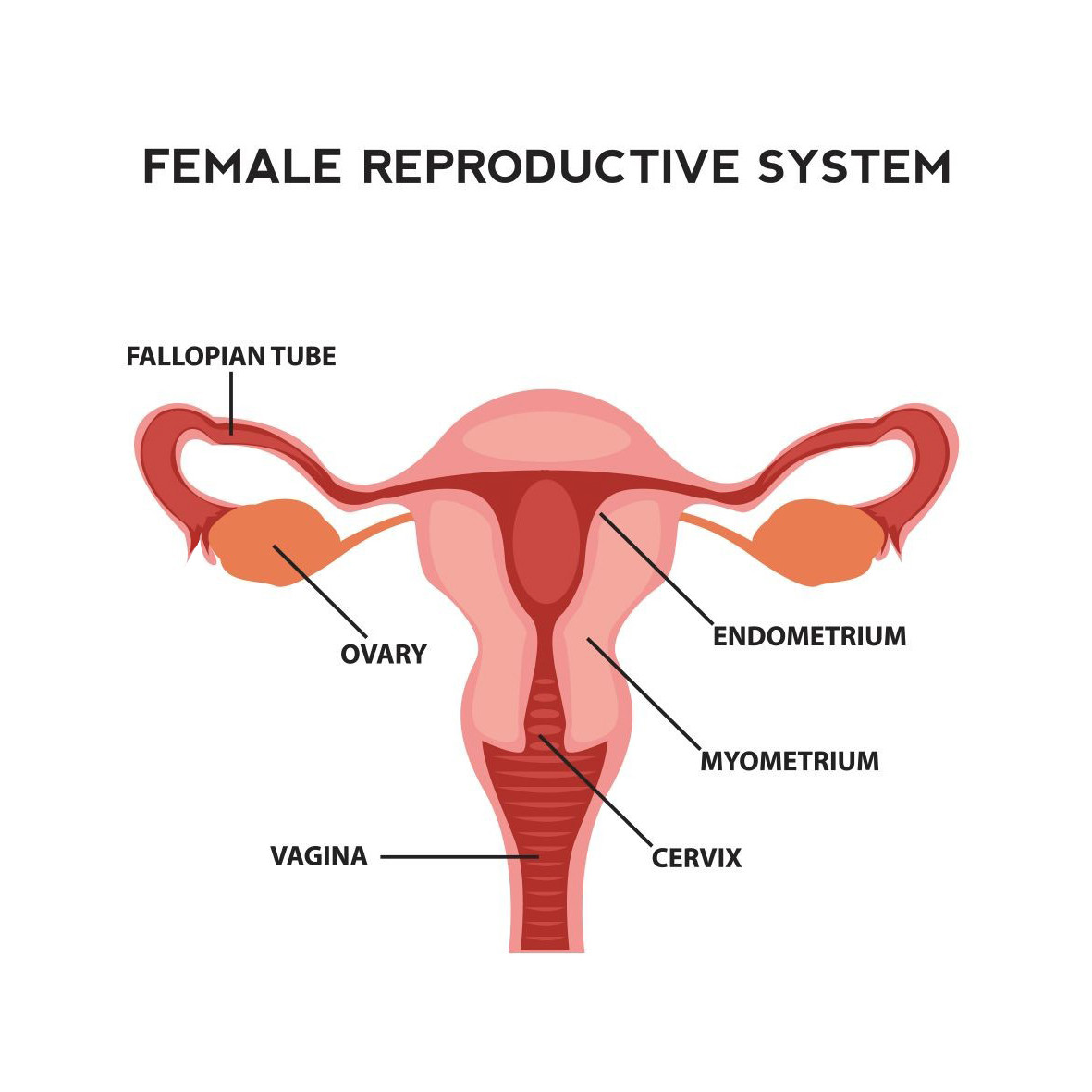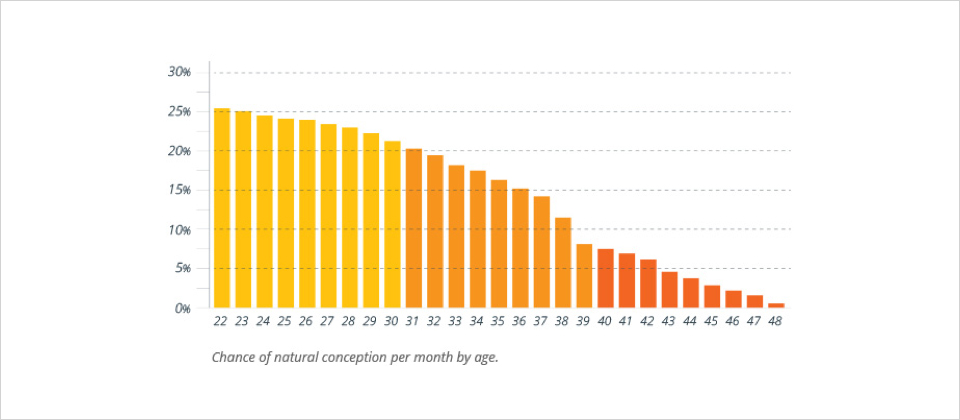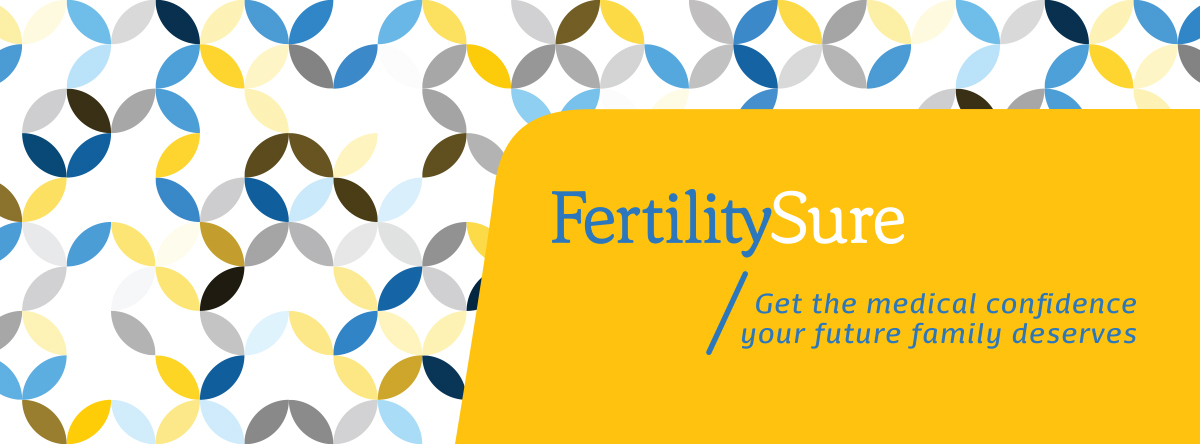When you are starting a family it helps to understand the process of conception. Every month a woman releases an egg, this is called ovulation. The egg is transported to the uterus via the Fallopian tubes through contractions and a wafting movement of the hairs lining the tubes. Fertilisation of the egg happens when the egg and sperm meet in the Fallopian tube. Sometimes certain things can disrupt this process delaying successful conception. These things could be abnormalities with the sperm, issues with ovulation or issues in the Fallopian tubes or the uterus. If you are having trouble conceiving, all possible factors should be assessed to be able to diagnose and determine the best treatment or assistance to ensure successful conception.
Fertility in women
The female reproductive system can be complex and fertility issues can sometimes be difficult to understand but once you have the right information, you can start to make the right choices for your family.

Some of the reasons for not being able to conceive could be in:
The Ovaries
When there are problems with the ovaries the process of ovulation is disrupted, which can cause infertility or difficulty conceiving. An infection could cause damage to the ovaries. Polycystic Ovarian Syndrome (PCOS) is one of the most common female reproductive system disorders which affects hormone levels, periods, ovulation and fertility. For some women, the onset of menopause could mean less availability of eggs for successful reproduction. Sometimes an imbalance of hormones such as Prolactin or Follicle stimulating hormone can influence how well the ovaries are functioning.
The Fallopian Tubes
The Fallopian Tube is the pathway for both the egg and the sperm take to the uterus. When healthy sperm meets a healthy egg along this tube, the egg is fertilised and moves on to the uterus. But sometimes there can be damage to these tubes or a blockage. The damage often occurs without us even knowing it. Things that can cause damage to the Fallopian tubes could be pelvic infection, previous pelvic surgery, endometriosis (when tissue usually found in the uterus is found outside the uterus which can develop into cysts), a previous ectopic pregnancy (when the egg implants somewhere outside the uterus), and tubal ligation (when the Fallopian tubes have been tied to prevent pregnancy).
The Uterus
There are many reasons why the uterus may not be functioning as effectively as it should when it comes to reproduction. Fibroids, endometrial polyps, foreign bodies such as an intrauterine device, scar tissue, malformations of the uterus that exist since birth and infections such as chronic endometriosis are all common causes of problems in the uterus.
Fertility in older women
As you get older your fertility starts to drop and your chances of getting pregnant decrease.

This doesn’t mean you can’t have a child. For women who are over 35 and are having trouble conceiving, we have various options for you. Speak to our specialists to find out how we can give you your best chances of getting pregnant.
Other reasons you may be having trouble conceiving:
Fertility in men
In about 40% of couples in Nigeria looking for assistance in conception, the cause is linked to issues with the man’s sperm.
When it comes to testing for fertility challenges in couples, it is much easier and less invasive to first do a semen analysis to test for problems with the sperm. The test will determine how much semen is produced and provide information on the sperm quality.
A semen analysis is performed to evaluate the health and viability of sperm. Three major factors are measured:
1 The number of sperm (sperm count/density)
2 The shape of the sperm (50%+ should be normal)
3 The movement of the sperm (50%+ should move normally)
pH level, sperm volume, liquefaction and appearance should also be normal. If sperm are abnormal, they will have trouble reaching and/or penetrating the egg, which makes conception challenging. Further tests can also be recommended by your fertility specialist including genetic tests, hormone testing, urinalysis after ejaculation, testicular biopsy and antisperm immune cells testing.
At Bridge Clinic we understand that fertility challenges, or possible male infertility, is a private matter and we therefore treat each case with the utmost confidentiality. We can assist with sperm collection, analysis and selection for improved pregnancy chances.

We recommend FertilitySure for Men. It is the first and most accessible step towards diagnosing fertility challenges. Men and women can be assessed separately, but because infertility generally affects both partners, we recommend that they are both present.
What can cause male infertility?
Some other reasons you may be having trouble conceiving:
What happens when there is no cause diagnosed?
Not having a definite answer can be frustrating but most men with abnormal semen fall into this category. It is still possible to reproduce but if success has not been achieved within three years, advanced reproductive technology is available for you and your family.
We can help you find the right treatment whatever your situation:
You’ve been trying for a family for a while now. You may be worried. You may have seen a doctor about it in the past or this may be your first attempt to find out why you are struggling to get pregnant. Our only objective as a fertility centre is to assist you by establishing the reasons for the challenge and to provide you with a solution to ensure you get the chance of having a family of your own.
We offer:
Free counselling
Facing the challenges and decisions that need to be made and which are associated with medical assistance in getting pregnant isn’t easy. We have seen the impact of family and societal pressure on couples and we have witnessed what these pressures do to a marriage. To help you, and to ensure you are emotionally supported each step of the way, we provide free counselling throughout your treatment at Bridge Clinic Fertility Centre.
Treatment Options
The easiest way to identify the cause of your challenge is through a series of assessments. Our specialists are trained to perform only the most necessary evaluations and to rule out any obvious reasons for your challenges. As these assessments are more specialised, your treatment options are narrowed down to ensure that the treatment that you receive is most suitable to your specific challenge. Once we can identify the cause of the challenge, we can help you make the right choice.
The first thing to determine is whether or not you can conceive naturally. Sometimes all your body needs in order for you to get pregnant is a bit of help from a medical professional.
Fertility Preservation Treatments
Whether it is for your first child or second, we give you the choice of freezing your spare embryos through a process of vitrification.
Egg Donor
Egg donation is the process by which a younger woman donates eggs for purposes of assisted reproduction. Egg donation typically involves in vitro fertilisation (IVF), with the eggs being fertilised by the partner’s sperm in the laboratory. Eggs from donors may also be stored for later use.Sperm donor
Sperm from donors can be used for donor insemination (DI) or IVF to help the woman become pregnant. Sperm donors are screened for sexually transmitted diseases and some genetic disorders. In DI, sperm from the donor is placed into the neck of the womb (cervix) at the time when the woman ovulates. It is important we obtain consent from both parties before the use of donor sperm, except for single ladies.Cryopreservation
Cryopreservation is a cooling technique for freezing reproductive tissue in liquid nitrogen to a temperature of -196 ° C. Frozen sperm, oocytes and embryos do not age and allows
us to store reproductive tissue for many years. In infertility planning, cryopreservation can be used at different stages and for different reasons.
There are two known techniques used for cryopreservation; slow-freezing and vitrification. At Bridge Clinic Fertility Centre, we choose vitrification because of the known high
success rate.
Vitrification
Vitrification is a sophisticated cryopreservation technique based on fast freezing of reproductive tissue within seconds. It uses a medium containing cryoprotectants, protecting cells against damage.
Vitrification of gametes and embryos is performed using modern processes in an enclosed system. In contrast to slow-freezing, this system allows an increase in the success rate of fertility treatment using frozen gametes and embryos almost to the level of success achieved with fresh samples.
Success of cryopreservation
At Bridge Clinic, we vitrify quality embryos at the blastocyst stage (day 5 or 6 of cultivation), which guarantees up to 98% success of survival of such embryos.
Oocyte cryopreservation has shown similar high success rates of live birth. Bridge Clinic Fertility Centre recorded the first live birth by oocyte vitrification in 2016 in
Nigeria.
Advantages of cryopreservation
Cryopreservation of oocytes (eggs)
Vitrification of oocytes (eggs) is, thanks to vitrification, a standard part of infertility treatment. According to international studies, vitrification of eggs does not affect clinical pregnancy and does not increase the risk of having a child with a congenital defect.
When is oocyte vitrification used?
Frozen Embryo Transfer
Freezing the embryo gives couples more options in planning their family and reduces the cost of subsequent assisted pregnancies. Freezing embryos for subsequent transfer may be
advised for women who are about to undergo chemotherapy or radiation therapy for cancer or other diseases. Frozen Embryo Transfer effectively doubles the chances of conception,
and is a far more cost effective option than a standard second cycle of In Vitro Fertilization.
Learn more about oocyte preservation
Fertility checks

The fees stated for intrauterine insemination do not include the cost of drugs or investigations
Standard Investigation and fertility specialist reviews are applicable before the commencement of this procedure. The fees stated for intrauterine insemination do not include the cost of drugs or investigations.
Standard Investigation and fertility specialist reviews are applicable before the commencement of this procedure.
Female Donors (Egg donors)
Are you considering being an egg donor? If yes, we want you to know that couples who are struggling to start a family would have a glimmer of hope. Donating eggs has been
described as one of the most powerful and rewarding decisions a woman can make, and if you choose to be an egg donor, we are more than happy to guide you through.
We’ve itemized some of the minimum requirements to be a Bridge Clinic oocyte donor:
If the above minimum donor egg requirements are met, please complete and submit the online application, please do well to contact us via:
Lagos: 08104607746
Abuja: 08104607783
Port Harcourt: 08104607729
Email: viva@thebridgeclinic.com
Male Donors (Sperm donors)
Sometimes, some men have poor sperm quality, azoospermia, oligospermia, or other conditions associated with male infertility. In situations like these, a fertility doctor can
recommend the use of a healthy sperm donor.
Just like in the case of an oocyte donor, the child conceived via a donor sperm would have no genetic relationship with the father. If you are considering being a sperm donor,
please note the following:
Think you fit the description as a potential sperm donor? Feel free to contact our laboratory team.
Lab team: 08104607726
Book an appointment online or search for a clinic close to you.
Book an AppointmentSearch by condition, treatment or keyword and conveniently browse our informative articles